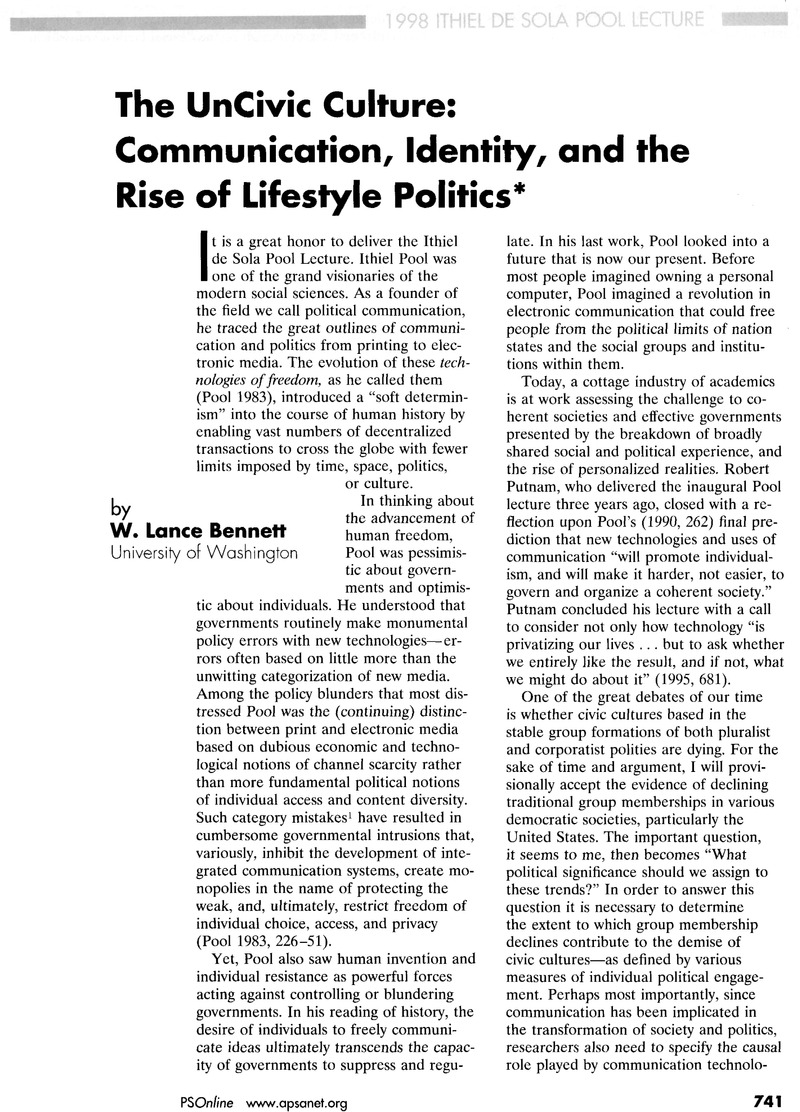Article contents
The UnCivic Culture: Communication, Identity, and the Rise of Lifestyle Politics
Published online by Cambridge University Press: 02 September 2013
Abstract

- Type
- 1998 Ithiel de Sola Pool Lecture
- Information
- Copyright
- Copyright © The American Political Science Association 1998
Footnotes
I am grateful to a number of people who have shared both data and unpublished analyses with me. In particular, I thank Marty Horn, director of research at DDB Needham in Chicago, for sharing the exhaustive research on personal lifestyles contained in the Life Style Studies, 1975-97. Also, Stephen Rose, formerly chief economist for the National Commission on Employment Policy and now at the Educational Testing Service, has provided valuable analyses of individual-level workforce trends dating from 1967. Wendy Rahn has stimulated my thinking with her original analyses of General Social Survey and Monitoring the Future data. Additional analyses of the GSS and MTF data sets for this project were conducted by Valerie Hunt, without whose assistance far too many questions would have gone unanswered. Regina Lawrence provided creative input through web-based data searches, as well as with her usual cogent criticism. I am also indebted to a number of colleagues for their readings and responses to earlier versions of these ideas. They include Murray Edelman, Robert Lane, Bill Gamson, Robert Putnam, and Ed Greenberg. I also thank David Altheide, David Swanson, and Bruce Gronbeck for opportunities to present talks on aspects of this project at Arizona State University, the University of Illinois, and the University of Iowa. Gene Borgida, Wendy Rahn, and John Sullivan provided a stimulating forum for early airing of these ideas at the Minnesota Political Psychology Symposium. The responses of the participants and audiences in all cases were most helpful to developing these ideas. Bryan Jones and the Center for American Politics and Public Policy at the University of Washington have provided both a stimulating environment and important support for this research.
References
- 149
- Cited by


